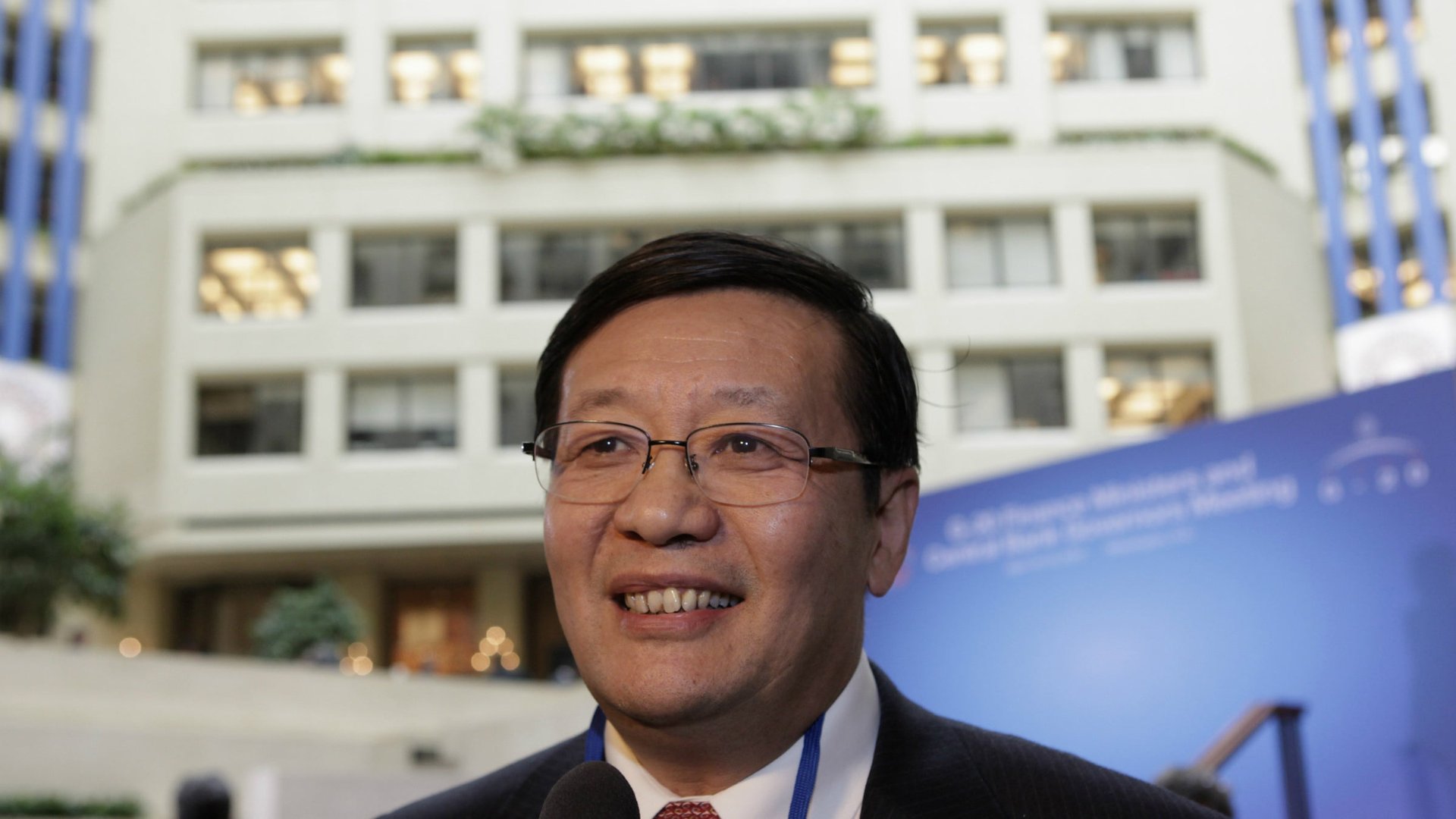Did China’s finance minister just unofficially downgrade the country’s growth?
The finance world has been getting used to the idea that China is slowing down, with a number of analysts adjusting their forecasts to reflect the fact that growth in 2013 may not be much more than Beijing’s official growth of 7.5%—the slowest rate in 23 years. But Chinese finance minister Lou Jiwei went well beyond that in Washington on Thursday, suggesting that 6.5% growth would not be a “big problem” and that he is confident only of 7% growth.


The finance world has been getting used to the idea that China is slowing down, with a number of analysts adjusting their forecasts to reflect the fact that growth in 2013 may not be much more than Beijing’s official growth of 7.5%—the slowest rate in 23 years. But Chinese finance minister Lou Jiwei went well beyond that in Washington on Thursday, suggesting that 6.5% growth would not be a “big problem” and that he is confident only of 7% growth.
Based on growth rates in the first and second quarters of this year—7.7% and an estimated 7.5% respectively—Lou seems to be suggesting that the second half will be particularly ugly, a view that is strongly suggested by this week’s export/import data and will probably be confirmed with next week’s quarterly GDP announcement. Zhang Zhiwei, an economist at Nomura, sees almost a one in three chance (paywall) that growth will fall below 7% in the second half of this year. Wei Yao, a Societe Generale economist, thinks the growth rate is already below the government’s target, and others don’t see a bright future in 2014.
There is already an established guessing game going on about what China’s leaders are hinting at. Premier Li Keqiang said recently that growth and employment must be kept above a floor level and that inflation should be kept under a ceiling. He didn’t specify what that meant, leading to speculation that fine tuning policies would be forthcoming, and other assertions that he was just restating existing priorities.
But however one tries to read between the lines, Beijing is delivering one clear message: reform will not be sacrificed for short-term growth. In Washington, Lou said that “structural reform is paying off,” and that China’s efforts to fix its broken financial services industry are making progress. He pointed to increases in domestic consumption as a proportion of GDP, a growing service sector, a good employment situation and manageable inflation.
Economists wouldn’t necessarily agree. Unemployment, consumer spending, inflation and service sector growth data have all been weaker than Beijing would have liked. Li and Lou clearly believe that a slower-growing healthy economy is better than a fast-growing unhealthy one, but getting there without a “hard landing” is going to be a painful slog.